
"Beauty and the Beast" is a fairy tale written by French novelist Gabrielle-Suzanne Barbot de Villeneuve and published in 1740 in La Jeune Américaine et les contes marins. Her lengthy version was abridged, rewritten, and published by French novelist Jeanne-Marie Leprince de Beaumont in 1756 in Magasin des enfants to produce the version most commonly retold. Later, Andrew Lang retold the story in Blue Fairy Book, a part of the Fairy Book series, in 1889. The fairy tale was influenced by the story of Petrus Gonsalvus as well as Ancient Greek stories such as "Cupid and Psyche" from The Golden Ass, written by Lucius Apuleius Madaurensis in the second century AD, and "The Pig King", an Italian fairytale published by Giovanni Francesco Straparola in The Facetious Nights of Straparola around 1550.
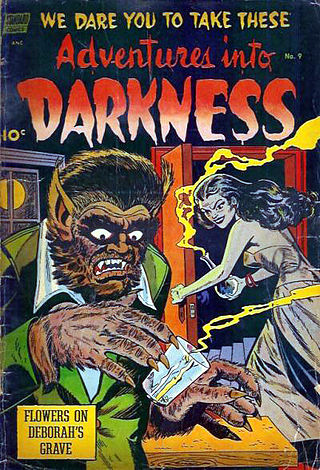
Werewolf fiction denotes the portrayal of werewolves and other shapeshifting therianthropes, in the media of literature, drama, film, games and music. Werewolf literature includes folklore, legend, saga, fairy tales, Gothic and horror fiction, fantasy fiction and poetry. Such stories may be supernatural, symbolic or allegorical. A classic cinematic example of the theme is The Wolf Man (1941) which in later films joins with the Frankenstein Monster and Count Dracula as one of the three famous icons of modern day horror. However, werewolf fiction is an exceptionally diverse genre, with ancient folkloric roots and manifold modern re-interpretations.
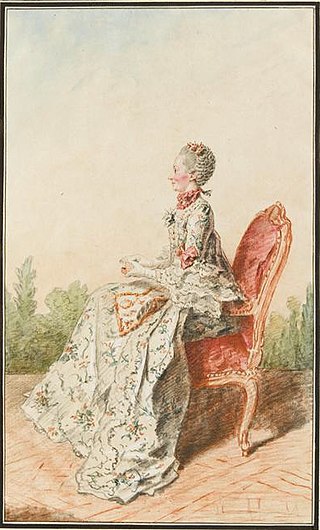
Gabrielle-Suzanne Barbot de Villeneuve was a French novelist influenced by Madame d'Aulnoy, Charles Perrault, and various précieuse writers. Villeneuve is particularly noted for her original story of La Belle et la Bête, which was published in 1740 and is the oldest known variant of the fairy tale Beauty and the Beast.
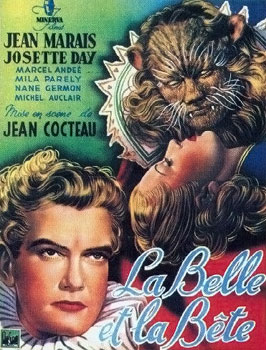
Beauty and the Beast is a 1946 French romantic fantasy film directed by French poet and filmmaker Jean Cocteau. Starring Josette Day as Belle and Jean Marais as the Beast, it is an adaptation of the 1757 story Beauty and the Beast, written by Jeanne-Marie Leprince de Beaumont and published as part of a fairy tale anthology.
Beauty and the Beast is a traditional fairy tale.

Juraj Jakubisko was a Slovak film director. He directed fifteen feature films, between 1967 and 2008. He often took on the dual role of cinematographer, and is often also credited as a screenplay writer as he usually co-writes or writes the scripts of his movies. In 2000 he was named Best Slovak Director of the 20th century by film critics and journalists. His work is often described as magical realism.
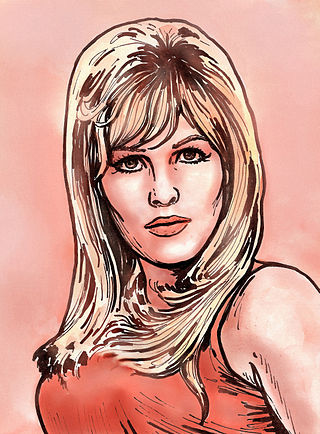
Olga Schoberová, also known as Olinka Bérová, is a Czech-American actress. She acted in Czech, German, Italian, Austrian, Polish, English, and American movies. As "Olinka Berova", she appeared in The Vengeance of She (1968), and several more films. Schoberová has been compared to Brigitte Bardot and Ursula Andress. She is fluent in Czech, English, German and Russian.

Jiřina Bohdalová is a Czech actress.
Václav Kotva was a Czech actor.

Krabat – The Sorcerer's Apprentice is a 1978 Czechoslovak cutout animated dark fantasy film directed by Karel Zeman, based on the 1971 book Krabat by Otfried Preußler, and the Sorbian folk tale upon which the book is based. The name Krabat is derived from the word Croat.
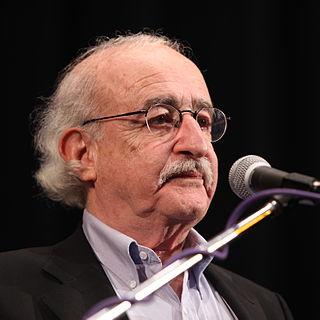
Juraj Herz was a Slovak film director, actor, and scene designer, associated with the Czechoslovak New Wave movement of the 1960s. He is best known for his 1969 horror/black comedy The Cremator, often cited as one of the best Czechoslovak films of all time, though many of his other films achieved cult status. He directed for both film and television, and in the latter capacity he directed episodes of a French-Czech television series based on George Simenon's Maigret novels.
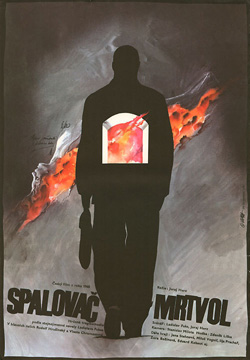
The Cremator is a 1969 Czechoslovak dark comedy horror film directed by Juraj Herz, based on a novel by Ladislav Fuks. The screenplay was written by Herz and Fuks. The film was selected as the Czechoslovakian entry for the Best Foreign Language Film at the 42nd Academy Awards, but was not accepted as a nominee. In 1972, it won the Festival de Cine de Sitges Best Film award, where it also received awards for its star Rudolf Hrušínský and cinematographer Stanislav Milota.

Habermann is a 2010 Czech-German-Austrian war drama film directed by Juraj Herz. In the story, the lives of a German mill owner and his family in the Sudetenland are changed dramatically as Europe heats up in 1938. The movie is based on true events and is the first major motion picture to dramatize the post-World War II expulsion of 3 million ethnic Germans from Czechoslovakia.
The Junk Shop is a 1965 Czechoslovak comedic short film directed by Juraj Herz, based on a story by Bohumil Hrabal called Baron Prasil. It is the very first film made by the director. Though his very first film, it displays his knack for bizarre, disquieting and creepy visuals that will become more prominent throughout his career. This film was originally intended to be part of the anthology film Pearls of the Deep but it was excluded due to its running time being too long. The film follows a group of comical patrons and shopkeepers at a local junk shop, including Hanta, the titular Baron Prasil, a pervert, comedian and scoundrel who is missing his front teeth, his boss Bohoušek, a straight man who is constantly aggravated by the odd personalities at his shop and Mařenka, a beautiful woman who lives on the next floor who Bohoušek admires. Hedvicka is another young woman Bohoušek admires though she offends him when she mentions the scale he steps on lists his weight as 364 pounds. "Cleo" is another patron, an older Hindu woman with facial hair growing in who constantly irritates Bohoušek with tales of her former youth and beauty. The cast is largely non-professional actors which is not unusual for the Czech new wave.
The Ninth Heart is a 1979 Czechoslovak dark fantasy fairy tale horror film directed by Juraj Herz. The film starred Josef Kemr.

The Scarlet Flower, also known as The Little Scarlet Flower or The Little Red Flower, is a Russian fairy tale written by Sergey Aksakov. It is a variation of the plot of the fairy tale Beauty and the Beast. In Russia, Beauty and the Beast story is known mostly via Aksakov's retelling.
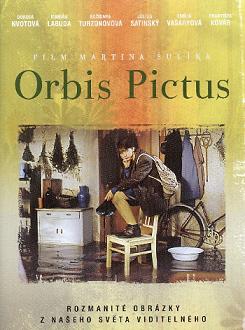
Orbis Pictus is a 1997 Slovak film, starring Dorota Nvotová, Marián Labuda, Božidara Turzonovová, Július Satinský, Emília Vášáryová and František Kovár. The film, directed by Martin Šulík, won Special Award of the Jury at the International Filmfestival Mannheim-Heidelberg in Baden-Württemberg, Germany as the Best Film in 1997. The film was selected as the Slovak entry for the Best Foreign Language Film at the 70th Academy Awards, but was not accepted as a nominee.
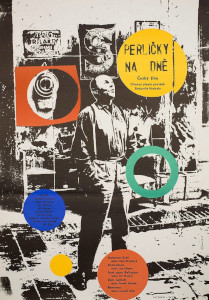
Pearls of the Deep is a 1966 Czechoslovak anthology film directed by Jiří Menzel, Jan Němec, Evald Schorm, Věra Chytilová and Jaromil Jireš. The five segments are all based on short stories by Bohumil Hrabal. The film was released in Czechoslovakia on 7 January 1966.
The Flat is a 1968 Czech surrealist short film directed by Jan Švankmajer. The film features no dialogue, only music by Zdeněk Liška.

Martina Gasparovič Bezoušková is a Czech theatre and film actress and teacher.















